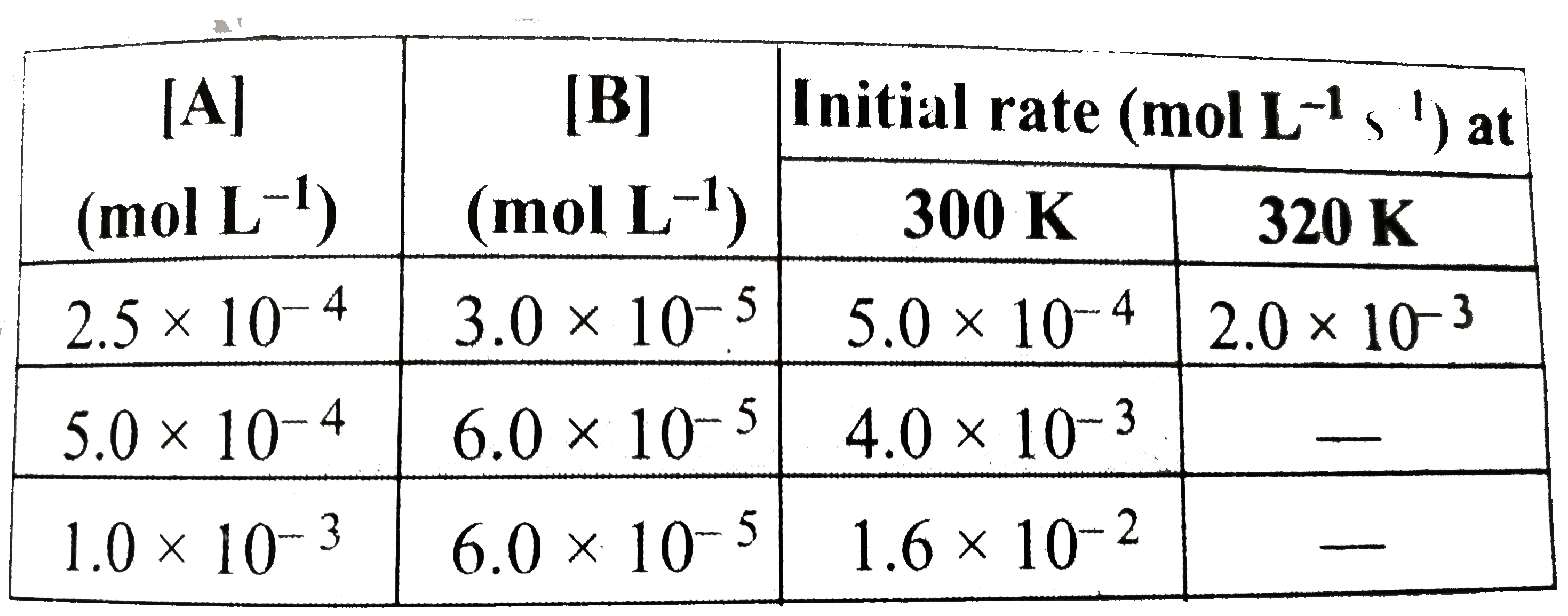The rate constant of a reaction will be equal to the pre-exponential factor when
Temperature in centigrade is zero.
The absolute temperature is zero.
The absolute temperature is infinity.
No suitable answer.
The correct Answer is:C
k=Ae−Ea/RT
(A is called pre-exponential factor)
When T→∞
k=Ae−Ea/R∞
k=Ae0[−EaR×∞=0]
∴K=A
Topper's Solved these Questions
- BOOK - CENGAGE CHEMISTRYCHAPTER - CHEMICAL KINETICSEXERCISE - Solved Example52videos
CHEMICAL KINETICS
- BOOK - CENGAGE CHEMISTRYCHAPTER - CHEMICAL KINETICSEXERCISE - Ex 4.1 (Objective)9videos
CHEMICAL KINETICS
- BOOK - CENGAGE CHEMISTRYCHAPTER - CARBOXYLIC ACIDS AND THEIR DERIVATIVESEXERCISE - Exercises Archives (Analytical And Descriptive)34videos
CARBOXYLIC ACIDS AND THEIR DERIVATIVES
- BOOK - CENGAGE CHEMISTRYCHAPTER - COORDINATION COMPOUNDSEXERCISE - Archives Subjective18videos
COORDINATION COMPOUNDS
Similar Questions
What is a frequency factor or pre-exponential factor?
View Solutionform the following data for the reaction between A and B,

(a) Calculate the order of the reaction with respect to A and with respect to B.
(b) Calculate the rate constant at 300K.
( c) Calculate the pre-expontential factor.View Solution
Knowledge Check
- Question 1 - Select One
The rate constant of a reaction becomes equal to the pre exponential factor when:
Athe absolute temperature is zeroBthe activation energy is infinityCthe absolute temperature is infinityDthe activation energy is zero - Question 2 - Select One
The rate of chemical reaction are strongly affected by temperature . Arrhenius (1889) gave following relation between rate contant and temperature .
k=Ae−Ea/RT .....(i)
This equation is called Arrhenius equation. The constant 'A' is caleld Arrhenius of pre-exponential factor. Logarithm of equation (i) given :
log10k=log10AEa2.3030RT .....(ii)
The rate constant for a reaction is .
log10sec−1=14−1.25×104KT .....(iii)
At what temperature, rate constant of the reaction is equal to the pre-exponenntial factor ?AT=0KBT=∞KCT=1.25×10414KDT=141.25×104K - Question 3 - Select One
The rate constant of a reaction is equal to rate of reaction
Awhen oncentrations of reactants do not change with timeBwhen concentrations of all reactants and products are equalCat time, t = 0Dwhen oncentrations of all reactants are unity
The rate constant of a reaction changes when
View SolutionThe rate constant of a reaction is equal to the rate of reaction when
View SolutionThe rate constant for a first order reaction is equal to the initial rate of reaction when the initial concentration of the reactant is
View SolutionThe rate constant for the decompoistion of a certain reaction is described by the equation:
logk(s−1)=14−1.25×104KT
At what temperature, rate constant is equal to pre-exponential factor?View SolutionThe rate of reaction increases isgnificantly with increase in temperature. Generally, rate of reactions are doubled for every 10∘C rise in temperature. Temperature coefficient gives us an idea about the change in the rate of a reaction for every 10∘C change in temperature.
Temperature coefficient(μ)=Rate constant of(T+10)∘CRate constant atT∘C
Arrhenius gave an equation which describes aret constant k as a function of temperature
k=Ae−Ea/RT
where k is the rate constant, A is the frequency factor or pre-exponential factor, Ea is the activation energy, T is the temperature in kelvin, R is the universal gas constant.
Equation when expressed in logarithmic form becomes
logk=logA−Ea2.303RT
Activation energies of two reaction are Ea and Ea' with Ea>E'a. If the temperature of the reacting systems is increased form T1 to T2 (k' is rate constant at higher temperature).View Solution

